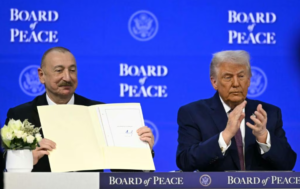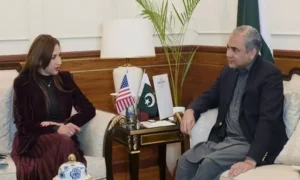Negotiating Chaos

As if socio-political polarisation, a nose-diving economy, and devastating floods were not enough, a disturbing escalation in militancy has also crashed the party uninvited. The increasing number of attacks on the personnel of law enforcement agencies (LEA) and infrastructure point to chinks in the armour of our counter-terrorism capacity and strategy caused by complacency due to the relative lull in terrorist activities during recent years. The net result has been a gradual decline in the level of national counter-terrorism vigilance. The ferocity and frequency of incidents that unfolded towards the end of 2022 have made the revitalisation of counter-terrorism efforts and stabilising the economic situation among the two highest priority tasks for the national leadership.
The prospect of TTP and Baloch militants combining forces would be a particularly disturbing spectre for the State
Following repeated incidents of militancy during the closing days of last year has removed any doubts about the TTP’s intentions and abilities. It has demonstrated that it seeks to avail every opportunity to disrupt the peace and calm of the nation and its progress. This has raised the alarms for reinstituting preventive and punitive measures to contain and dismantle the group and its networks of support. In a worrisome statement issued by the TTP on Jan 4, 2023, the outlawed outfit announced that it is considering taking concrete steps against the two major parties of the ruling coalition — the Pakistan Peoples’ Party and Pakistan Muslim League-Nawaz — by declaring, “…if these two parties remain firm on their position and continue to be slaves of the army, then action will be taken against their leading people”. It also added that “People should avoid getting close to such leading people”. The TTP claimed that the whole world is aware that the “Jihadi field of TTP is only Pakistan and our target is the security agencies occupying the country”. If so, the battle lines stand vividly drawn.
Prudence and vigilance on the part of the State of Pakistan remain the approach. On the external front, Pakistan is contemplating asking the Afghan government to take a clear stand.
The US State Department Spokesperson Ned Price said:
“The Pakistani people have suffered tremendously from terrorist attacks. Pakistan has a right to defend itself from terrorism”, adding: “We continue…to call on the Taliban to uphold the very commitment they have made to see to it that Afghan soil is never again used as a launchpad for international terrorist attacks.”
Under the guise of negotiations, the TTP was able to extract a number of concessions during the process of parleys and has been able to regroup and consolidate its position in North and South Waziristan, from where they launch attacks on the security forces as well as civilian targets in other parts of the country. After the recent collapse of the TTP ceasefire, the terrorist group has increased its violent activities.
The Baloch insurgents are said to have forged a nexus with the TTP at the bidding of certain outside forces interested in destabilising Pakistan and also undermining the China Pakistan Economic Corridor. The prospect of TTP and Baloch militants combining forces would be a particularly disturbing spectre for the State, as it would present an even greater security challenge. Additional fault lines that need factoring in are the history of religiously inspired militancy in Balochistan, and the porous border with Afghanistan facilitating the movement of armed groups with relative ease.
It is refreshing that the national leadership has taken cognisance of the situation. The marathon meeting of the National Security Committee (NSC) resolved to safeguard fundamental interests and security and development with utmost courage, consistency, and perseverance. Prime Minister Shehbaz Sharif expressed his resolve to continue to move forward together with “iron determination” against terrorism. And earlier, at the Corps Commanders’ Conference chaired by the Army Chief, General Syed Asim Munir, the Army leadership had “resolved to fight against terrorists without any distinction and eliminate this menace as per the aspirations of the people of Pakistan”.
To meet the challenge head-on, the NSC has decided to turn up the heat on the militancy with an unrelenting approach and measures to neutralise the threat. An all-encompassing operation against terrorism seems to have become inevitable. And the entire nation is united on one narrative against terrorism. It is reassuring that during the NSC meeting, the PM took ownership of any comprehensive counter-terrorism campaign by declaring that in line with the National Action Plan and the National Internal Security Policy, the federal and provincial governments will lead the fight against terrorism.
The armed forces have vowed to provide a “solid deterrence” in ensuring a conducive and safe environment for the social and economic development of the people of Pakistan.
This reiteration comes as a much-needed assurance that this terror outfit will soon be decimated. It has been done once before and will be done once again. The state needs to quickly address the emerging threat, lest the country slip back into widespread violence. If there is an emerging nexus between the TTP and Baloch militants, it must be broken, while if there is evidence that the Baloch separatists are finding refuge in Taliban-controlled Afghanistan, this needs to be taken up with Kabul’s rulers. However, the key to success lies in choking the logistics of the terror outfit — a challenging but necessary task. With the national leadership having built a consensus to crush terror, there will be no more appeasement at the cost of the state’s sovereignty. The basic interests of Pakistan’s integrity, security, and development are non-negotiable and should be protected with all the resources at the disposal of the state and society with courage, consistency, and steadfastness.


